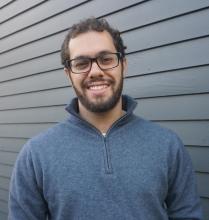CS Colloquium
Cameron Musco
Title: The Power of Simple Algorithms: From Data Science to Biological Systems
Host: Dan Spielman
Abstract:
In recent years, very simple randomized methods, such as stochastic iteration, sampling, and hashing, have become dominant computational tools in large-scale machine learning and data science. In this talk, I will discuss my efforts to understand and harness the remarkable power of these methods.
In particular, I will describe my work on a new class of simple, but principled, sampling algorithms for learning, estimation, and optimization. I will show how these algorithms give surprising computational breakthroughs for core problems like linear regression, low-rank matrix approximation, and kernel learning. They are especially effective when combined with more traditional algorithmic tools, like iterative methods in numerical linear algebra.
Beyond algorithm design, I will discuss my efforts to understand simple, randomized methods through a different lens: by studying how complex behavior emerges from local, stochastic interactions in biological systems. I will demonstrate how many of the same mathematical tools used to study algorithms in data science can be applied to these systems. As an example, I will highlight my research on noisy estimation and decision making in social insect colonies.
Bio:
Cameron Musco is a 5th year Ph.D. student in computer science at MIT, advised by Nancy Lynch and supported by an NSF Graduate Student Fellowship. He studies the algorithmic foundations of data science and machine learning from an interdisciplinary perspective. His work draws on tools from theoretical computer science, numerical linear algebra, optimization, statistics, and biology. He is particularly interested in the power of randomized algorithms and in methods for streaming, distributed, and low-memory computation. Cameron received his undergraduate degree in computer science and applied mathematics from Yale University.
